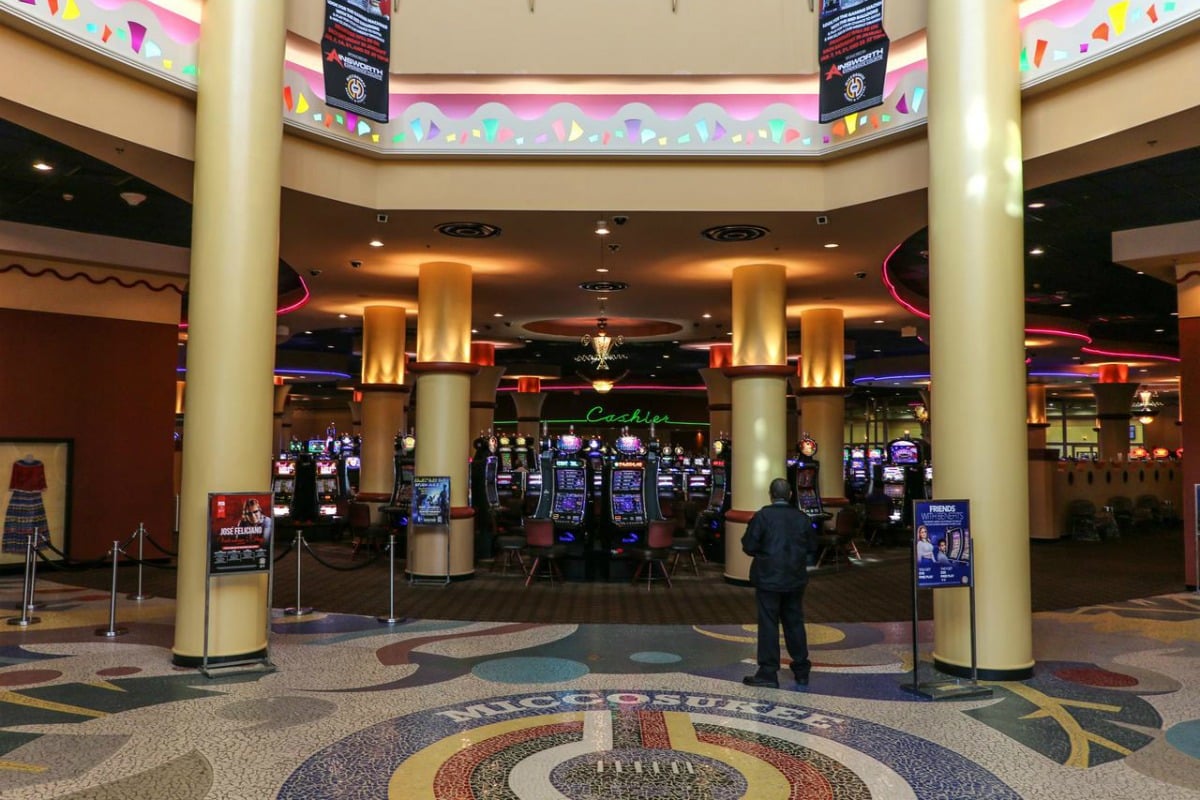Former Miami Casino Employees Charged in $5M Theft at Tribal Resort
Posted on: August 7, 2019, 11:41h.
Last updated on: June 30, 2020, 10:42h.
Federal prosecutors say The Miccosukee Resort & Gaming property owned by a Native American tribe was the target of a multiyear theft orchestrated by then-workers. The casino is located roughly 20 miles west of downtown Miami in the Everglades.

Miami federal prosecutors say the gaming terminals were tampered with by four employees and four co-conspirators to generate illicit credit vouchers that were then exchanged for cash either from casino ATMs, casino cashiers, or the casino treasury. A 63-count indictment against the eight was filed on July 16 by the US Attorney’s Office for the Southern District of Florida. The case was unsealed this week and made public.
Those charged in the case are Michel Aleu, 41, Lester Lavin, 43, Yohander Jorrin Melhen, 42, Leonard Betancourt, 46, Maria Del Pilar Aleu, 39, Anisleydi Vergel Hermida, 30, Milagros Marile Acosta Torres, 33, and Yusmary Shirley Duran, 40. All are Miami residents, according to the US Attorney’s Office.
Prosecutors claim Aleu, Lavin, Melhen, and Betancourt embezzled more than $5 million from the casino.
The Miccosukee Tribe of Indians of Florida is the only other Native American group — along with the powerful Seminole Tribe — that operates gaming in the Sunshine State. But while the Miccosukee Tribe hasn’t entered into a gaming compact with the state to operate Class III gaming (slot machines and table games), the Seminoles own six full-scale casinos.
Laundry List of Charges
Charges against the defendants include money laundering, conspiracy to embezzle more than $1,000 from a tribal gaming establishment, making false statements to law enforcement, and computer fraud. The indictment alleges that they laundered the illicit funds through the casino and then used the money to purchase real estate, vehicles, and invest in college savings plans.
The FBI and Miccosukee Police Department carried out the investigation. The latter is the law enforcement agency of the tribal community that is home to roughly 640 members.
Prosecutors believe the scheme ran between early 2011 and the spring of 2015. None of the defendants currently work at the casino. It’s not known if any were, or are, members of the Miccosukee Tribe.
Independent Tribe, Miami Competition
The Miccosukee people are described as a fiercely independent Native American organization, so much so that they’d prefer to not offer slot machines and table games at their lone casino instead of entering into a state compact and share revenue with the government in Tallahassee.
Class III gaming would make the remote casino more appealing to Miami residents and travelers. Parimutuel facilities in Miami-Dade and Broward counties are permitted to house slot machines, so long as they pay a $2 million annual fee and an additional $250,000, the latter used to support problem gambling programs.
Billionaire Phil Ruffin — who owns TI in Las Vegas — acquired Casino Miami last December. The racino offers 1,000 slot machines, electronic table games, and pari-mutuel wagering on live jai-alai and simulcast racing.
The closest full-scale casino to Miami is some 25 miles north, at the Seminole’s Hard Rock Hollywood. Genting Group, a Malaysian-based conglomerate that owns the Resorts World casino brand, is spending hundreds of millions of dollars in hopes of bringing commercial gambling to Miami.
In 2011, Genting paid $236 million for a 30-acre vacant plot of land adjacent to Biscayne Bay. The company wants to build a multibillion-dollar integrated resort on the property.
No comments yet